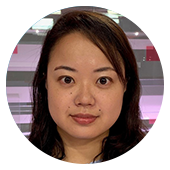Mie Mifune was only 31 years old when she was diagnosed with breast cancer in 2010. It was two weeks before her wedding.
"I thought breast cancer affects women in their 40s and 50s. When I first found out I had it, my mind went numb from shock. But when I spoke to my doctor about treatment, I realized I may be able to look forward to life after cancer."

According to Japan's National Cancer Center, breast cancer is the most common type of cancer in women in their 30s. Its incidence rate rises as women get older, and it peaks from the late 40s to early 50s.
After consulting with her doctor and four other experts for a second opinion, Mifune opted for hormone therapy, which would preserve her fertility. She had a baby girl last October.
"Now that medical technology is highly developed, there are so many options for treatment. After consulting with my doctor and my husband, I chose a treatment that would allow me to have a baby. It's good to have options, but sometimes I felt like I had to choose between my own life and that of my child."
Mifune was in Hiroshima, a provincial city, when she was diagnosed with cancer. She didn't meet anyone close to her age at the clinic she went to. She felt isolated, scared and anxious.
She is currently in charge of Pink Ring, an organization for cancer patients in their 20s and 30s. There are more than 500 members, and they discuss diverse subjects: treatment, work, relationships, and fashion. She started holding events across Japan to help young patients create communities within their region.

Mifune says many young patients are especially concerned that their fertility may be threatened by their disease or its treatment.
"Members talk about a fear of becoming infertile. People in their 20s and 30s are usually at the beginning of the most active period of their life, yet they must suddenly make a life-changing decision in a short period of time on cancer treatment," she explains.
The government developed a basic plan to promote cancer control programs last year, which included young generations for the first time. It includes the enrichment of support and counseling systems regarding treatment and fertility.
The Japan Society of Clinical Oncology also created guidelines for doctors regarding treatment and fertility. They say to carry out cancer treatment while considering the patient's fertility and to introduce experts on reproductive medicine if necessary.
Mifune believes that financial support is necessary for younger cancer survivors when considering their reproductive future.
"Young generations don't have much money saved up, so sometimes they have to give up certain treatment options. There should be ways to support them if they want to have a child while fighting cancer."
A series of short videos titled "An Idol's Battle with Breast Cancer" are available here. A former Japanese idol Miki Yakata shares her experience fighting breast cancer.

